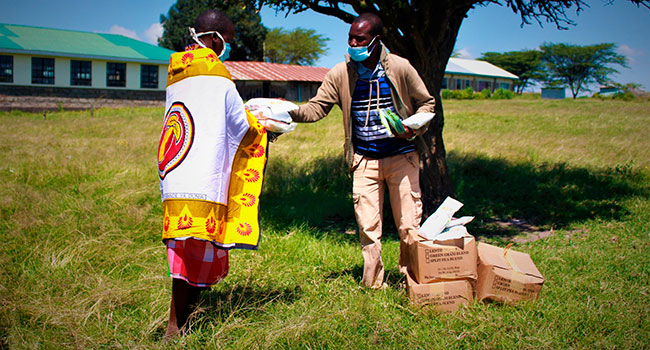 The WE Charity scandal inspired the questions but so many other charities should be affected by the answers.
The WE Charity scandal inspired the questions but so many other charities should be affected by the answers.
In August, the House of Commons standing committee on finance called employees of Charity Intelligence Canada to the stand. Ninety minutes of testimony from managing director Kate Bahen and director of research Greg Thomson demonstrated the need for four straightforward changes to federal charitable policy.
Charity Intelligence compiles information and makes independent assessments of hundreds of Canadian charities each year. In 2019, 314,000 Canadians used CharityIntelligence.ca to find information and read more than 1.3 million reports.
The organization estimates its research helped inform and influence $95 million of Canadian charitable giving last year. One can only hope their testimony also inspires some policy changes.
End the founders’ loophole
In response to a question, Bahen revealed a loophole used by WE’s Marc and Craig Kielburger to avoid disclosures. As founders, the Kielburgers could even fire board members, yet had no fiduciary duties. Bahen explained.
“The auditor must report transactions from a charity or a business to its directors or to its officers, but there are no disclosure requirements if you are a co-founder. That’s just a box they don’t have.”
Make CRA publicize when non-profits breach laws
Another MP questioned Bahen regarding the Jewish National Fund of Canada, given that prominent former Conservative MP John Baird had an association with it, and the fund named a bird sanctuary after Stephen Harper.
The fund would not post its financial statements, forcing Charity Intelligence to get a redacted copy from the charities directorate.
Despite getting $12 million in donations in 2017, it spent just $5.7 million on its causes and had $36 million in assets. Information was so lacking that Charity Intelligence couldn’t give donors an adequate assessment of its demonstrated impact.
Could WE Charity Spell the End for Trudeau? By Michael Taube
The charity was taken to task by the charities directorate for using funds for Israeli military projects, which isn’t allowed, and in 2016 said it would no longer fund such projects. However, a 2019 article by CBC showed documents that suggested funds were still going to projects linked to Israel’s military.
Charity lawyer Mark Blumberg, in a written submission to the finance committee, recommended “That the federal government amend Section 241 of the Income Tax Act in order to allow the CRA to disclose serious non-compliance with legal requirements by a registered charity, registered Canadian amateur athletic associations or certain other qualified donees.”
If Jewish National Fund of Canada or other charities are in breach, Canadians should know.
Publish financial statements of large charities
Blumberg also recommended publishing financial statements of large charities, and questions directed to Bahen only illustrated its necessity. One MP challenged Bahen regarding her criticism of the Winnipeg Jets’ True North Youth Foundation.
In the 2018 report Canadian Pro Sports Teams and their Charities, Charity Intelligence revealed that most team foundations reported little on their actual charitable work, despite annual revenues higher than 97 per cent of charities. Maple Leafs Sports and Entertainment Foundation stood alone by posting its full financial information online and donating 79 cents of every dollar raised to its causes. The Ottawa Senators Foundation gave 46 cents and Calgary Flames Foundation gave 30 cents on every dollar.
Again, a little transparency went a long way. The Calgary Flames Foundation published its 2018-19 financial report online and could even boast that 85 cents of every dollar now went to its causes. The foundation even listed every recipient of the funds and the amount they received.
Another MP confronted Bahen on Charity Intelligence’s low rating of the Calgary Royal Canadian Legion’s poppy fund. CI gave the fund an F in “results reporting,” the lowest rating for demonstrated impact, since it wouldn’t publish financial statements. Bahen testified the Legion command took over Calgary operations “because of the concerns about its financial transparency.”
Other MPs challenged Charity Intelligence’s ability to make proper assessments given the small size of the organization.
MPs can help with that problem.
Bahen told me in an interview, “We submitted 110 requests for information to the charities directorate to get audited financial statements this year and that’s crazy to me. These are big charities with websites, professional staff and we’re just asking, ‘Could you post a PDF?’ And charities just sort of say no.”
Change the disbursement quota
In her statement to the committee, Bahen reiterated an Imagine Canada estimate that charitable donations will drop up to $6.2 billion in 2020 due to the pandemic. This is a sizable loss, since Canadians gave $17 billion in 2019.
Canadian foundations have investment portfolios that exceed $100 billion. If they had to give five per cent of that in 2020 instead of 3.5 percent, charities would give $700 million more to causes in a year of special need.
The WE contract with the federal government has vanished but problems in the charitable sector remain. It’s up to the government to make straightforward and necessary policy changes for the good of Canadians.
Lee Harding is a research associate for the Frontier Centre for Public Policy.
Lee is a Troy Media Thought Leader. Why aren’t you?
The views, opinions and positions expressed by columnists and contributors are the author’s alone. They do not inherently or expressly reflect the views, opinions and/or positions of our publication.


